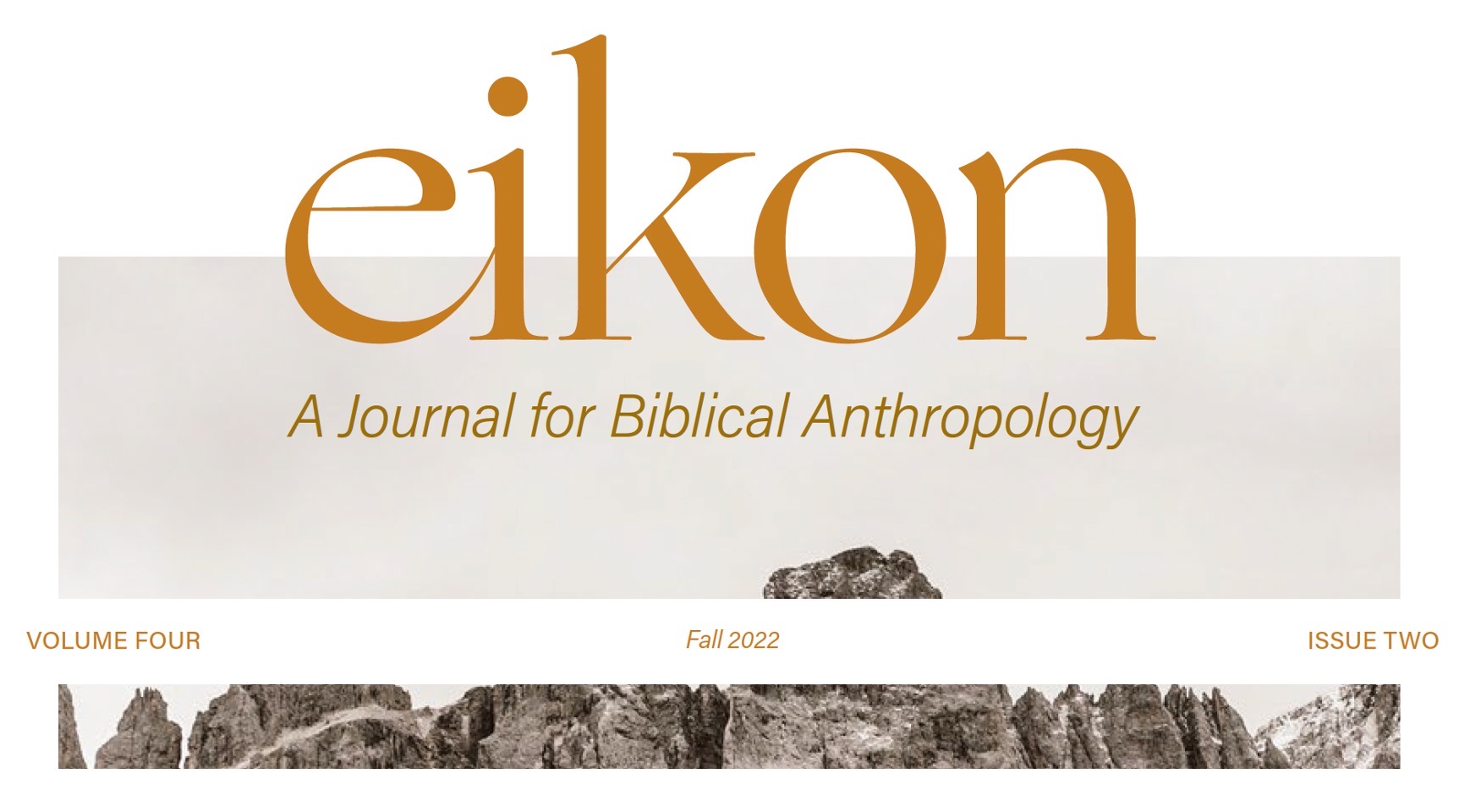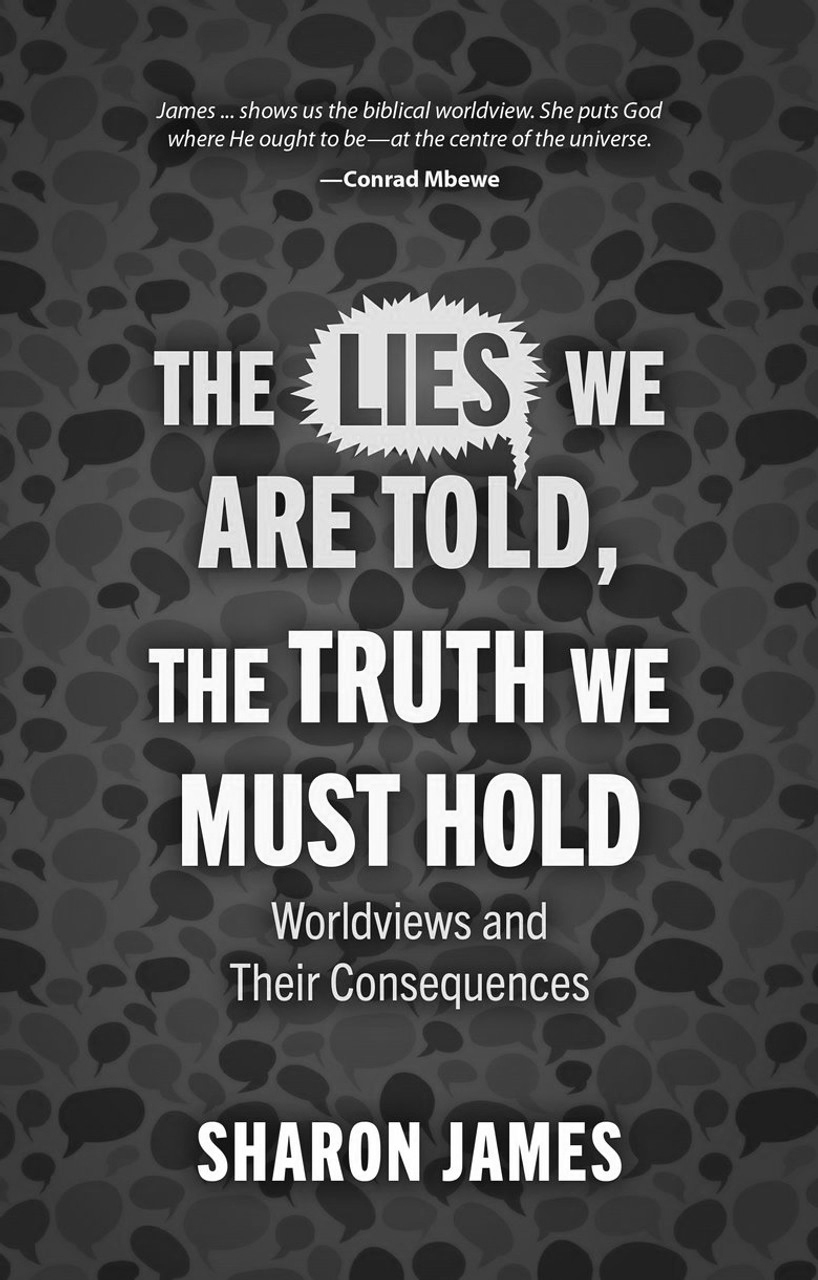Editors note: the following book review appears in the Fall 2022 issue of Eikon.

James, Sharon. The Lies We are Told, the Truth We Must Hold: Worldviews and Their Consequences. Fearn, Scotland: Christian Focus, 2022.
 Mature Christians are developed through a steady diet of the meaty truths of Scripture, and it is these who have their sensibilities calibrated to function in accord with God’s revelation (Heb. 5:14). Sharon James is such a Christian. She is well-equipped for engaging the material and ideologies she addresses in The Lies We are Told, the Truth We Must Hold, as she has a longstanding track record of addressing complicated cultural debates in a way that is both biblical and comprehensible to the average Christian.
Mature Christians are developed through a steady diet of the meaty truths of Scripture, and it is these who have their sensibilities calibrated to function in accord with God’s revelation (Heb. 5:14). Sharon James is such a Christian. She is well-equipped for engaging the material and ideologies she addresses in The Lies We are Told, the Truth We Must Hold, as she has a longstanding track record of addressing complicated cultural debates in a way that is both biblical and comprehensible to the average Christian.
James is clear about her intentions: “This book is intended as a simple primer, a ‘road map’ of some of the complex worldview issues that challenge Bible-believing Christians today” (10). Her thesis is that the options of “silence, acquiescence, and/or celebration buys into lies and ignores the truth…The only solid basis for defending human dignity and achieving justice is a biblical worldview” (22–23). To defend her thesis James divides the book into two parts. In part one (chapters 1–6), she takes on the godless ideologies plaguing society under the heading the lies we are told. In part two (chapters 7–10), she lays a biblical worldview under the banner of the truth we must hold in place of the lies she seeks to expose in part one.
While this book is short in length, it punches above its weight as James wastes no time in part one of this book nuancing the sinful ideologies of Darwinism (chapter 1), Marxism (chapter 2), Feminism/Fatherlessness (chapter 3), Relativism (chapter 4), Critical Theory (chapter 5), or Theological Liberalism (chapter 6), and more. She goes right to the rotten core of “the lies we are told,” exposing the delusional autonomy that rejects God at the root, and then gives example after example of the horrifying ways in which the bitter fruit of these ideas has and still does wreak havoc on humanity. It was moving and revolting to read again of the history of how Marxism has been applied in Russia, China, and Cambodia, and to be reminded that this ideology opposes the dignified and fruitful multiplicity for which God has created humanity. Humanism opposed to God as Creator views humanity instead as material, and recurrently ends in gulags and inhumane treatment of image bearers during the Cultural Revolution (61–73). We must never forget these ghastly pages of history as though these “analytical tools” offered by Darwin, Marx, Nietzsche, Freud, CT, and the others she mentions can produce anything but death and destruction.
James also insightfully connects how relativism gives way to fatherlessness, which removes God’s primary form of protection for women and children. She explains, “In 1964 only four small countries (Austria, Latvia, Iceland, and Sweden) had more than 10 percent of children born outside of marriage. By 2016, more than 60 percent of children were born outside of marriage in twenty-five countries” (98). Readers are forced to look upon the dystopian wreckage the false prophets of relativism delivered while promising utopia. In a sad irony, while the sexual revolution offers freedom for those it purports were oppressed and victimized by men, it nevertheless exposes women and children to even greater danger by maligning and removing husbands and fathers. This reality offers a strong rebuttal to the incoherent charge of “family idolatry” alleged by some even within evangelicalism. The crying need of the hour is not the coddling of selfhood and individual expression, but a call for individuals to situate themselves within God’s created order appropriately. The much-maligned nuclear family is a fortress of protection from the world and Christians need not denigrate God’s good institution of the family unit for the flourishing of human civilization on the altar of cultural respectability. Rather than cater to the world’s fruitlessness and share in its sins, Christians are to plant our roots deep in the soil of God’s created order and in so doing we will bear much fruit even as the stumps of the world decay.
James further provides an insightful synopsis of how liberalism has evolved from the naturalism of the nineteenth and twentieth centuries into the deconstruction liberal “Christianity” weaponizes now. In other words, just as they once used the worldly standard of naturalism to reject a biblical understanding of creation and human dignity, so too they now use the analytical tool of Derridean deconstruction to both muddle and then reject the plain meaning of Scripture. The deconstruction movement that plagues evangelicalism today is a direct result of reading God’s Word through the foreign and hostile lens of postmodern relativism. Those who profess Christ and yet move away from his word as the foundation for life and doctrine end up parroting the world. The result of this is that they end up pursuing whatever forms of “justice” the world is clamoring after because they are untethered from God’s word as authoritative and now engage Scripture from a position of authority rather than a posture of submission.
Again and again in this book James hits the target with precision and skill. It is deeply refreshing to read about the complex matters of worldview from an author who avoids the pitfalls of either nuancing the discussion to the point of obfuscation or sounding shrill in oversimplification.
The Lies We are Told, the Truth We Must Hold is a superb resource for Christians seeking to make sense of the complex and confusing cultural narratives surrounding us today. I would highly commend this book for parents to read with their children, as James does an outstanding job of summarizing her broader arguments in each chapter in bite-sized pieces and then providing further resources that parents can turn to when children ask questions based on the chapters. James has compiled an excellent list of resources — many of which are web links so that readers do not need to purchase more books for further study! Moreover, this book will serve a Sunday School class and/or small group well for the same reasons. James has done her fellow Christians a great service by writing this book. She has succinctly exposed the lies and bitter fruit of the ideologies that surround us, while also highlighting the true, good, and beautiful that can be attained in keeping with a biblical worldview.
You, too, can help support the ministry of CBMW. We are a non-profit organization that is fully-funded by individual gifts and ministry partnerships. Your contribution will go directly toward the production of more gospel-centered, church-equipping resources.